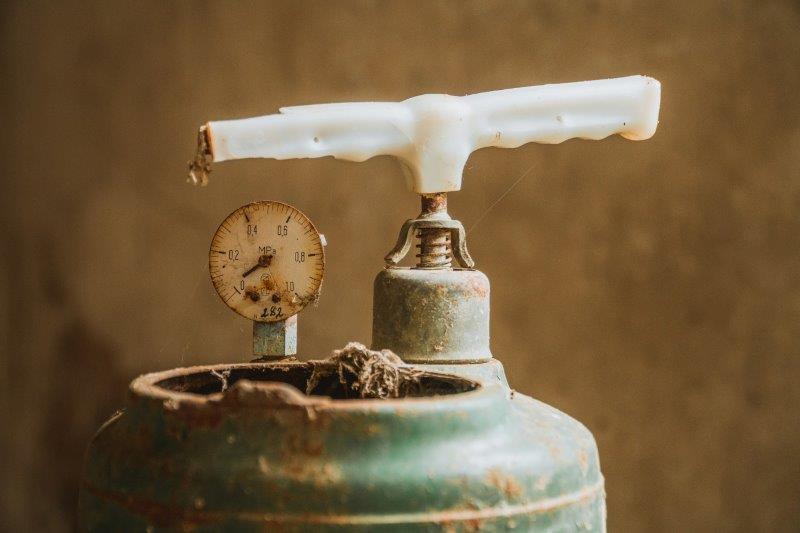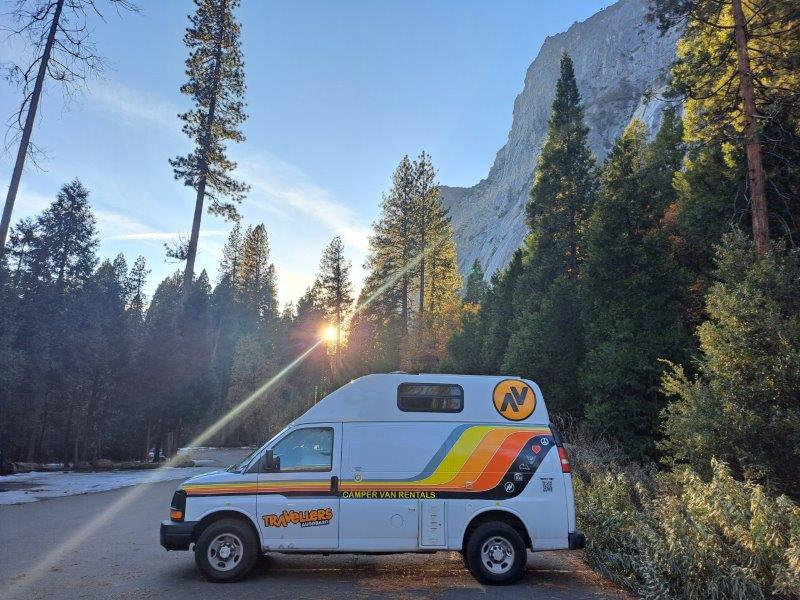If you’re an RV owner, then you know that a propane system is a key part of the experience. But safety is paramount with any gas-related system, and we know how important it is to take the necessary precautions to stay safe while using your RV’s propane setup.
In our experience of RV travelling, we’ve discovered many reasons why you always need to have propane. For one, it ensures that you have a functioning kitchen, with a gas stove that operates properly. You don’t want to go hungry or only eating cold food on your trip!
Your propane also powers the furnace and water heater to keep the RV and water warm when the temperature outside dips. Hot baths are definitely a great treat, as is staying nice and toasty when the temperature dips outside.
In this ultimate guide to safety for RV propane systems, we’ll cover everything you need to know as an RV owner to use your propane safely and avoid any potential disasters. It doesn’t matter if you are new to RV living or are experience to the point of building it from scratch on your own, there might be something useful to takeaway.
Regularly Inspect the Tank
If you own oil or gas tanks, then it is important to regularly inspect them for signs of damage or corrosion. This is especially true for older tanks, which can develop rust and structural issues over time.
When inspecting your tanks, it is important to check for any surface marks including dents or bulges, as these can indicate problems with the tank’s pressure limits or holding capacity.
As you go over the tank’s surface visually, use a flashlight and magnifying glass so that you don’t miss any small issues. It is also a good idea to run your hands along the surface; this will help identify any protrusions or areas where the paint may have been rubbed off.
Finally, if you’ve noticed an excessive amount of rust on your tanks in recent times, consider having them professionally inspected by someone who has experience in this field before proceeding with any repairs. Doing this will help ensure that your tanks are in good standing and safe to use.
Check the Connections Including Hose and Vents
Whether you’re out on the open road or visiting a scenic campsite, maintaining a safe and comfortable environment in your RV requires keeping up with regular maintenance.
One of the most important areas to inspect is the propane system, and particularly its connections. From the hose to the vents, any worn out parts can lead to dangerous problems. To avoid them, inspect both old and new components for debris or any pieces that are weathered due to age.
In particular, check the heating system vent, water heater vent, and refrigerator vent to look for signs of faulty connections. Keeping an eye on this area should not take long– particularly if it’s done regularly– but it can save you from potentially damaging issues down the line.

Keep Your Tank in the Proper Position
When operating an RV with a propane tank, one of the most important things to check for is a correctly secured and upright propane regulator. It’s essential that the regulator be in the proper orientation so it can effectively control the flow of gas from the tank.
An incorrectly positioned regulator can cause a diminished amount of fuel to be released and make it difficult for your RV appliances to run properly.
Furthermore, these devices come with safety valves that open when they detect too much pressure in your system, which can inhibit the flow of gas and keep your RV from running at its full potential.
This is why it’s always important to make sure your regulator is installed correctly according to its manufacturer’s instructions. It’s also wise to periodically check the connection points for buildup or damage, as this may indicate that your regulator needs replacing or must be removed and reattached properly.

Invest in Safety Equipment
When outfitting an RV propane system, safety should be paramount. We will always recommend taking the necessary steps to keep you safe when it comes to RV maintenance.
In order to make sure that your vehicle is adequately protected in the event of any emergency, investing in a few pieces of crucial safety equipment is essential.
Carbon monoxide detectors help to alert anyone in the vehicle when there are dangerous levels of carbon monoxide present, which can happen if something isn’t functioning properly with the gas systems.
Smoke detectors work similarly but will alert you to smoke in the air. To act as an early warning system for possible fires caused by propane leaks, you should have a propane alarm installed as well.
Finally, having multiple fire extinguishers on board is highly recommended for dousing any flames before they can cause too much damage.
Making sure that you have these safety measures in place will ensure that your RV propane system remains safe and secure at all times.

Install a Gas Stop Device
To prevent damage or danger when a RV propane system experiences a minor or major leak, it is essential to install a gas stop device.
A gas stop device remains tightly shut until it senses the presence of propane, then it automatically opens and releases the gas safely away from any heat or flames. This ensures that the RV’s propane system is effectively shut off in case of a leak, ensuring greater safety for all occupants.
In addition, installing this device will help you to choose the best mounting location for easy access and also ensure that there is adequate room for servicing and inspection down the road. Furthermore, if an unanticipated problem does arise during your trip, having this type of device installed can greatly reduce any risk involved in changing out a leaking tank.
Installing a gas stop device is an easy way to give peace of mind to RV owners and protect against any potential danger posed by problems with propane systems.
Use on Stationary Ground
When it comes to using an RV propane system, having your RV parked on a stationary ground is key for optimal safety and performance. It’s important to note that the RV propane system and even the generator functions properly on flat ground due to the ignition and flow of the gas powering the refrigerator, furnace, water heater and more.
Takeaways
If you’re thinking of using an RV propane system, or are a current user, make sure to follow our recommended safety tips. It can be easy to forget some of the basics when it comes to safely using this equipment, but doing so can result in disaster.
By taking a little extra time and being mindful of our advice based on our experiences, you can ensure that your RV propane system is operated as safely as possible.

No Comments